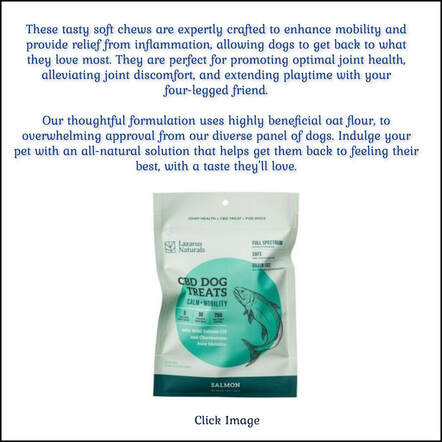
By Dr Karen Becker
If your veterinarian suspects a heart problem -- usually by hearing a murmur through a stethoscope, by doing a physical examination, and/or by considering symptoms your dog or cat is experiencing -- diagnostic tests will be required to confirm presence of disease.
These tests, usually x-rays, EKG or cardiac ultrasound, can cost several hundred dollars.
For many pet owners who want to be proactive in detecting heart disease in a dog or cat, the expense of these tests is prohibitive.
It’s a terrible situation to be in. If you’ve lost a dog or cat to heart disease, you’re bound to be fearful it could happen again to another pet. You want to take proactive steps to help your current dearly loved dog or cat avoid the problem, but you can’t afford the tests that will tell you whether or not you need to do more to insure the health of your companion animal.
It feels as if you have no choice but to wait to see if heart disease sneaks up silently to claim another four-legged member of your family.
That is, until now.
If your veterinarian suspects a heart problem -- usually by hearing a murmur through a stethoscope, by doing a physical examination, and/or by considering symptoms your dog or cat is experiencing -- diagnostic tests will be required to confirm presence of disease.
These tests, usually x-rays, EKG or cardiac ultrasound, can cost several hundred dollars.
For many pet owners who want to be proactive in detecting heart disease in a dog or cat, the expense of these tests is prohibitive.
It’s a terrible situation to be in. If you’ve lost a dog or cat to heart disease, you’re bound to be fearful it could happen again to another pet. You want to take proactive steps to help your current dearly loved dog or cat avoid the problem, but you can’t afford the tests that will tell you whether or not you need to do more to insure the health of your companion animal.
It feels as if you have no choice but to wait to see if heart disease sneaks up silently to claim another four-legged member of your family.
That is, until now.
|
A Blood Test for Early Detection of Heart Disease in Pets
This is wonderful news! At long last, veterinary medicine has developed a blood test that can identify which dogs and cats are at greatest risk for heart disease and heart failure. The test is called a proBNP test. BNP = B-type Natriuretic Peptide. |
The proBNP is a blood test that measures how much peptide hormone, released by the heart, is in circulation in your pet’s body. This hormone is only released when the heart is pushed beyond its capacity.
Very early in the disease process, small amounts of the hormone will be released into your dog’s or cat’s bloodstream, and it’s presence is a signal that steps must be taken in order to preserve your pet’s heart health.
Very early in the disease process, small amounts of the hormone will be released into your dog’s or cat’s bloodstream, and it’s presence is a signal that steps must be taken in order to preserve your pet’s heart health.
If heart pathology continues to progress, the blood value of the peptide hormone will continue to rise.
Ask your veterinarian for the proBNP blood test if you’re concerned about your pet’s heart for any reason.
The proBNP blood test can give you peace of mind that your pet has no early signs of heart disease.
It can also help you and your veterinarian differentiate between, for example, a respiratory condition like feline asthma and an underlying heart condition.
The proBNP is a simple blood test with a fast turn-around time that can provide the information you need to proactively manage your dog’s or cat’s heart health. You can have the test repeated as often as necessary to chart your progress in meeting your pet’s cardiovascular health needs throughout his life.
Ask your veterinarian for the proBNP blood test if you’re concerned about your pet’s heart for any reason.
The proBNP blood test can give you peace of mind that your pet has no early signs of heart disease.
It can also help you and your veterinarian differentiate between, for example, a respiratory condition like feline asthma and an underlying heart condition.
The proBNP is a simple blood test with a fast turn-around time that can provide the information you need to proactively manage your dog’s or cat’s heart health. You can have the test repeated as often as necessary to chart your progress in meeting your pet’s cardiovascular health needs throughout his life.
Make sure you’re meeting your pet’s CoQ10 requirement . CoQ10 is a naturally occurring coenzyme that young dogs and cats have in plentiful supply. But as she ages, your pet’s ability to produce CoQ10 decreases.
I recommend you supplement your pet’s amino-acid-rich diet with Coenzyme Q10, especially if you have an animal that is predisposed to cardiovascular disease. Supplying your pet with extra CoQ10 can insure she has the quantity her body needs to maintain a healthy heart muscle.
CoQ10 supplements come in two forms: Ubiquinone and Ubiqunol. Ubiquinol is a reduced form of CoQ10 and is the supplement I recommend for my dog and cat patients. A good heart-healthy maintenance dose is:
50 mg per day for cats and small dogs
100 mg per day for medium sized dogs
100 mg twice per day for large dogs
Double this amount if heart issues going on...
I recommend you supplement your pet’s amino-acid-rich diet with Coenzyme Q10, especially if you have an animal that is predisposed to cardiovascular disease. Supplying your pet with extra CoQ10 can insure she has the quantity her body needs to maintain a healthy heart muscle.
CoQ10 supplements come in two forms: Ubiquinone and Ubiqunol. Ubiquinol is a reduced form of CoQ10 and is the supplement I recommend for my dog and cat patients. A good heart-healthy maintenance dose is:
50 mg per day for cats and small dogs
100 mg per day for medium sized dogs
100 mg twice per day for large dogs
Double this amount if heart issues going on...
Read about the ProBNP heart test
| javma200912-assessment-ntprobnp.pdf | |
| File Size: | 463 kb |
| File Type: | |
| uk059_cardiopet-launch-brochure.pdf | |
| File Size: | 399 kb |
| File Type: | |
| ceg_circulations_canine-biomarkers_final.pdf | |
| File Size: | 249 kb |
| File Type: | |
















